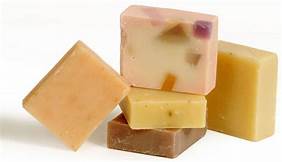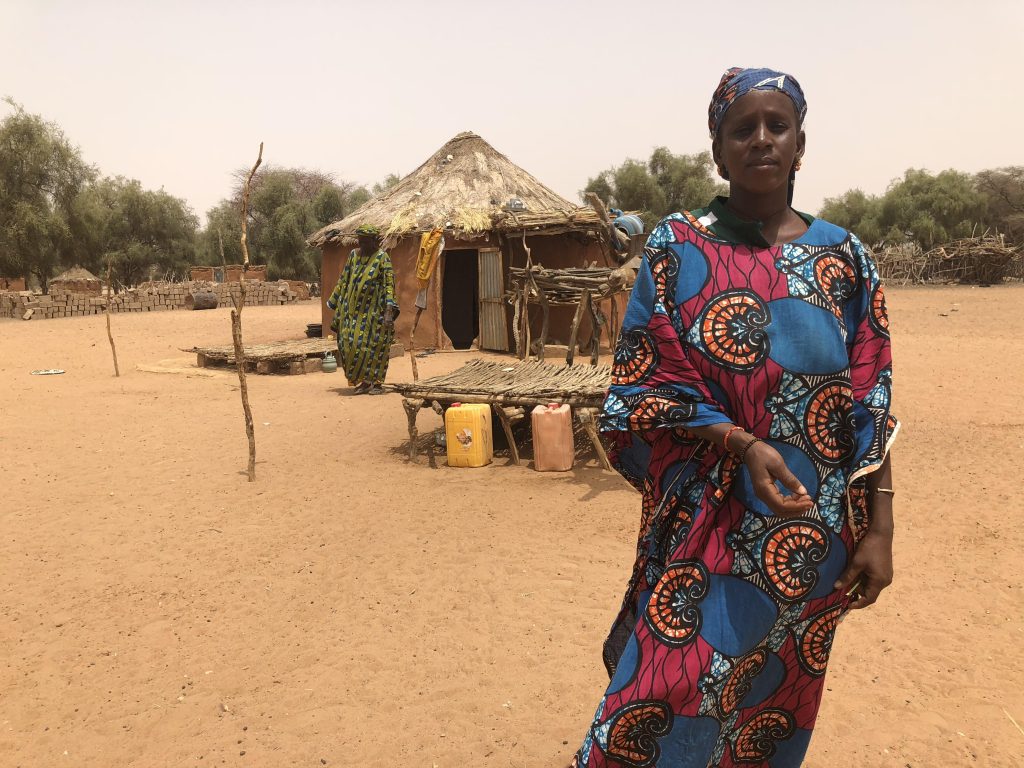“Since Ebola passed through our communities, we have been aware of the importance of handwashing with soap, especially after using the toilet. We have also discovered that most of our children’s diseases are related to hygiene,” says Pauline, 30, who is president of a women’s saving’s group in her community in Guinea’s Guéckedou prefecture.
Memories of the Ebola epidemic that killed more than 2,500 people in Guinea are still fresh in people’s minds so when Plan International proposed a new project which would not only provide the savings group members with an income but also contribute to the cleanliness of their local school, Pauline and her friends were keen to take part.
The 20 group members were given training on soap production – known as ‘saponification’ – some of the soap they sell, and the rest they give to their children’s school.
“We prepare the soap once a week and from the pieces destined for sale, a quantity is collected for the school. Now each time a pupil goes to the toilet, they can wash their hands with soap made by their mothers. We also set up handwashing kits at the beginning of each school year and we make sure that there is enough water.” Pauline explains.

Promoting good hygiene in schools is important as young children are particularly vulnerable to diseases, which can quickly spread among students. Schools, parents and teaching staff all play a vital role in promoting good hygiene behaviour for children and adolescents, leading by example and setting best practice.
“Each week, we clean the schoolyard and sometimes even the classrooms, because our goal is to have a healthy and safe school environment for the happiness of our children.” Pauline says, adding: “You can’t expect everything from the government or partners to make changes in your community.”
“For us, education is the basis of development. Being all mothers, our first commitment is the schooling of our youngsters. For those of us who did not have the chance to go to school, we want our children to achieve more than us,” says Pauline. “Thanks to the income from our soap-making activity, our children’s school fees are no longer a problem for us, and our children’s health is taken care of. In short, we are financially independent.”
Set up seven months ago, the soap making mothers are now yielding good results in their community, so much so that women from the surrounding villages are coming to learn from the group how they can develop similar initiatives in their communities.
“We don’t want to stop – our goal is to empower all the women in our prefecture. Every Thursday, we receive about ten women from the neighbouring villages to teach them how to prepare soap as we do and to how to develop other income-generating activities. In a year’s time, we hope that our school will serve as an example in terms of hygiene,” says Pauline.
The group have also started to explore other initiatives to prevent children from dropping out of school, especially girls who are more likely to drop out of education.
“From Monday to Wednesday, we have noticed that children stay in school until 3pm without eating anything. We want to organise an income-generating activity which will allow us to give meals to our children and the teachers, this will enable the children to concentrate on their studies. We hope to start this as soon as the new term begins.” Pauline says proudly.

